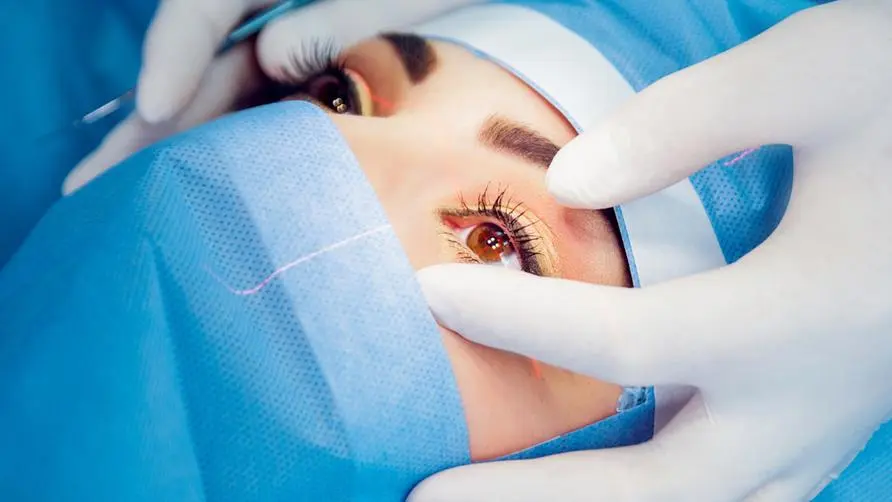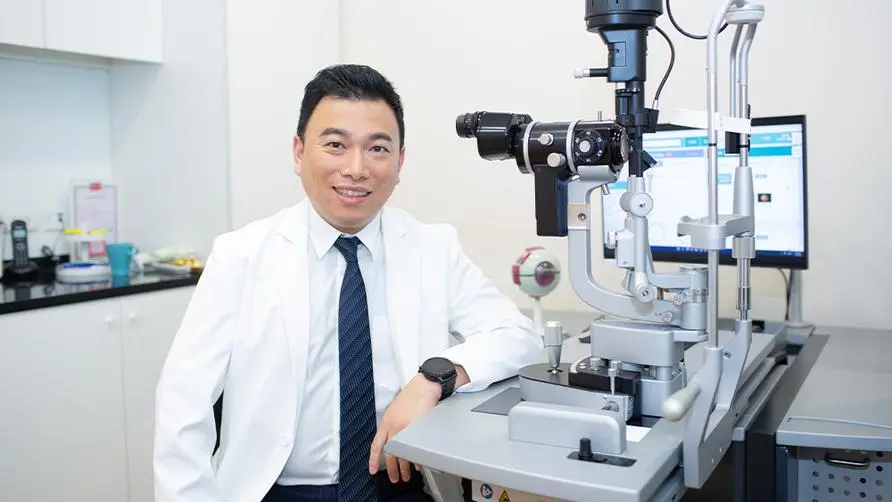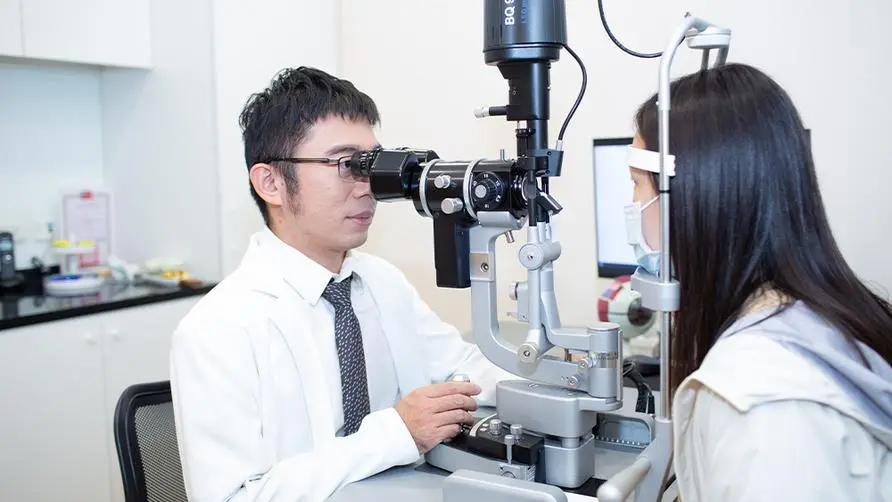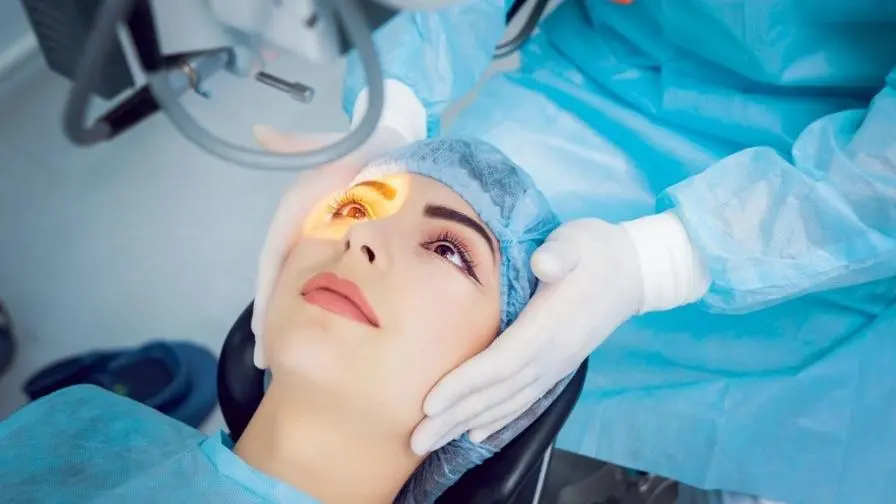Are there any risks in going abroad for myopia laser surgery? Eye doctors reveal "4 things you must know": avoid discovering problems after returning to your country

“Medical tourism” is booming after the lockdown is lifted! Is traveling abroad for myopia laser surgery a popular option?
Laser surgery for myopia has become very popular in recent years. Coupled with the tourism boom caused by the lifting of the epidemic, many Internet celebrities went to South Korea to undergo laser surgery for myopia. They claimed that it was not expensive and could be used for sightseeing, which attracted many people. Dr. You Zhihao, director of the Taipei branch of Weishi Ophthalmology Hospital, said in an interview that no matter what kind of surgery is performed abroad, it is recommended to set aside 1-2 weeks depending on the situation and observe that the eye condition is normal before returning to the country.
Dr. You Zhihao explained that the deductibles for medical treatment in European and American countries are relatively high, and many European and American people choose Asian countries such as South Korea, Taiwan, Thailand, and India where medical expenses are relatively cheap to receive treatment. This has led to the rise of the “medical tourism” industry. Among them, South Korea is world-famous for its medical aesthetics industry, with the “TransPRK/SMART TransPRK” procedure being the largest. Coupled with the tourism boom, it has attracted the attention of many young people.
What are the risks of traveling abroad to undergo laser myopia surgery? Doctor: “4 Things” You Should Know Before Going Abroad
Going abroad to undergo laser surgery for myopia, how is it different from the treatment in Taiwan? Dr. You Zhihao explained that generally there is not much difference in the surgical procedures between the two; generally speaking, the treatment will start on the second day of the trip, and the patient will have an eye examination at the local clinic. Once confirmed, the surgery will begin. . On the third to fourth days after surgery, therapeutic contact lenses need to be worn to help the cornea recover; the contact lenses can be removed on the fifth day. At this time, the patient can decide whether to return home immediately or stay in Korea for observation based on the recovery status. .
Many Internet creators claim that they can return to Korea 2-3 days after surgery. Dr. You Zhihao said that taking Smile femtosecond laser surgery as an example, a 2-4mm wound will be left for microsurgery after surgery. Invasive surgery; if the doctor’s skills are not ideal or mistakes are made, it is easy to leave impurities in the corneal dissection. In the past, there were cases where patients had cotton wool left in the cornea during surgery abroad, and the eye condition was not discovered until they returned home for inspection; now But there is no channel for consultation.
In general, Dr. You Zhihao reminds you that you should pay special attention to several points when going abroad to receive laser myopia surgery: The first is to find a translator who is professional and trustworthy enough. Difficult medical terminology and fee plans can easily lead to misunderstandings and even medical disputes between the two parties. ; The second is to carefully read the hospital evaluation and surgical instructions, and be sure to undergo a complete examination before surgery; third, you should reserve at least 1-2 weeks in the local area to observe the recovery status of the cornea and whether there are complications, etc. Finally, patients should keep their medical data and confirm whether there is a hospital that can cooperate with regular examinations after returning to their country, so that early intervention can be performed if there are abnormalities.
Do I need more “corneal enhancement surgery” when going abroad? Is it more important to reserve the corneal stromal layer?
In recent years, Korean myopia laser surgery mainly includes “corneal enhancement”. Is it necessary to perform additional procedures? Dr. You Zhihao explained that in fact, Taiwan often calls this surgery “Corneal cross-linking”, with the purpose of strengthening the hardness of the cornea and making it less susceptible to deformation; the main indication approved by the Ministry of Health and Welfare is keratoconus. and bulging disease after myopia laser.
Dr. You Zhihao emphasized that the medical community has not yet reached a conclusion on whether corneal cross-linking surgery is needed to strengthen the cornea during myopia laser surgery, and corneal cross-linking surgery is not without risks. Common complications include corneal edema and opacification. , infectious keratitis…etc. “Instead of having to undergo additional surgery and take another risk, it is better to choose a surgery that can preserve more of the corneal stromal layer from the beginning!”
Judging from the three popular surgeries in Taiwan: LASIK, Smile Pro and SMART TransPRK, Dr. You Zhihao suggests that regardless of whether they go abroad or choose to stay in Taiwan, people should give priority to the superficial surgery “SMART TransPRK” that reserves the most stromal layer. ; Its zero-contact, non-flap characteristics help to retain the maximum corneal stroma layer (at least 350µm). After the epithelial layer is regenerated after the operation, the corneal structure is complete and stable, and the visual quality and long-term stability of the cornea are better.
I went from Vancouver to Taiwan just to do laser surgery! He improved his 600-degree myopia and enjoyed clear vision
Taiwan’s medical and health care technology is world-famous, attracting many tourists to Taiwan for medical tourism. Dr. You Zhihao pointed out that descendants of Chinese from Hong Kong, China, Europe and the United States, or those who have long lived in Southeast Asia have come to Taiwan to receive myopia laser treatment. “There are also many engineers who come to Taiwan for business trips and have to leave within three months. We would advise foreign tourists to regularly contact our consultants after returning home and answer patients’ difficult and complicated diseases in real time through online communication.”
Dr. You Zhihao shared that he once conducted an online consultation with a Taiwanese patient who has lived in Canada and found that he had a problem of too large pupils. The optical zone range of myopia laser should be 0.5mm larger than the darkroom pupil. Otherwise, after the treatment, It is easy to produce glare, and it is recommended that patients should stop taking current medications. After the doctor evaluated the feasibility of the surgery, the patient immediately traveled from Vancouver to Taiwan to undergo the surgery. The patient’s 600-degree myopia was not only improved after the operation, but there were no obvious adverse reactions during regular follow-up after returning to Vancouver, and he has enjoyed healthy and clear vision ever since.
Whether you go abroad or go to Taiwan to receive laser treatment: it is recommended to reserve 2 weeks for observation
In addition to complete online consultation services, Dr. You Zhihao said that post-operative care is very important for foreign tourists, such as artificial tears, anti-inflammatory drugs, gels and other post-operative medications that need to be given for more than 3 months in order to Postoperative care continues after the patient returns home. If time permits, it is recommended that patients reserve 1-2 weeks to observe the condition of the cornea. If there are no adverse reactions or complications, it is the safest way to return to the country.
Finally, Dr. You Zhihao reminded that whether people go abroad to undergo surgery in person or return to Taiwan from abroad to undergo surgery, it is recommended to receive a complete eye examination before surgery; they must follow the doctor’s instructions and take medication regularly after surgery. If you have any symptoms of discomfort, you should proactively contact the local attending physician, or seek medical examination immediately after returning to your country to prevent symptoms from worsening and affecting your vision.
Extended reading:





